
September 13, 2023 | Awareness Week, Life with MS, Media, My Story
Featured in Woman magazine: https://womanmagazine.co.nz/multiple-sclerosis-awareness-week-liz-gasson-on-living-life-with-ms/
Liz Gasson and her cycling coach Steve Bale are fresh off a plane when their faces pop into the zoom call, having just arrived at their accommodation in Salt Lake City. This is the third time this year the pair have travelled around the world, working towards qualifying for the 2028 Paralympics.
Para-cycling was introduced to the 45-year-old after being diagnosed with Multiple Sclerosis (MS). MS is an autoimmune condition in which the immune system attacks the protective sheath (myelin) that covers nerve fibres, causing scar tissue to form which prevents and hinders electrical impulses carrying messages from the brain.
Liz’s MS symptoms range from aphasia, neurological fatigue, ataxia, numbness, loss of balance, and more. “If you imagine, for a normal person, it takes 20,000 impulses to go through to move a hand, but it might take 120,000 for a person with MS, because the pathways are damaged. Today, I can really feel it – it’s like I’ve got little bugs crawling up my face, and I’ve got burning on my back and my right shoulder blade, and my foot just keeps on hanging down,” she says.
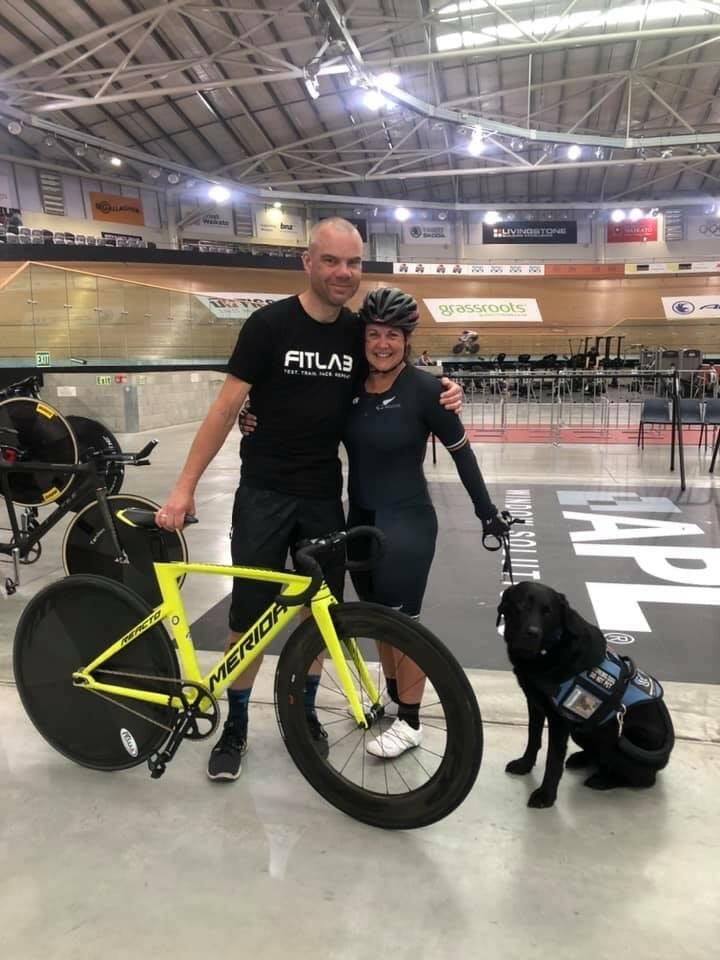
Multiple Sclerosis comes with the added challenge of ‘invisible symptoms’, where people affected by MS suffer from ailments that can’t be seen by the naked eye. Invisible symptoms can cause a disconnect – people will often underestimate one’s personal struggle with the disease.
“There’s this funny thing that happens. Some of my symptoms, like losing balance or weakness in my feet and dizziness, looks just like being drunk. You’ll get people coming up to you at the store and say, ‘You’re a disgrace, it’s 10 o’clock in the morning, and you’re drunk?’ People just don’t understand it.” Liz explains.
Although Liz deals with these interactions with grace, laughing the faux-pas off can present a whole other issue in itself – “Handling it with laughter is one thing. But I’ve also had a lot of people who say things like, ‘Oh, you’re faking it? You look really good. You can’t possibly have MS, you smile too much.’”
Liz and Steve share a chuckle over Liz’s service dog, black labrador Paddy, who is often written off as an ‘emotional support dog’ because Liz doesn’t have an obvious physical disability, like being in a wheelchair.
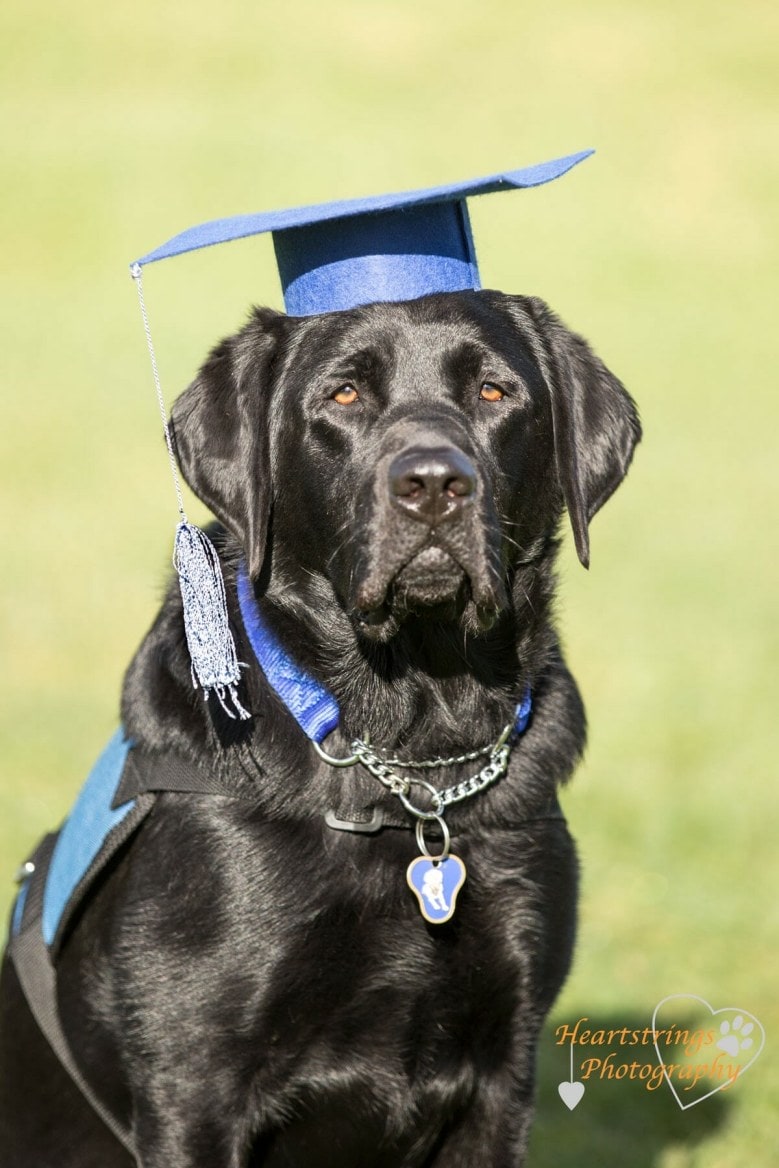
“We have seen miniature horses, support peacocks, snakes, and one person had a metre-long support lizard!” says Steve, in disbelief at the curious creatures labelled as service animals at LAX airport.
“The problem is, when we go through the airport with an actual service dog, they assume it’s for emotional support because they can’t see a disability. I had one person say that I really should be trying to deal with my “mental issues” differently rather than using an animal as it’s not fair on them. Paddy is not an emotional support dog. He is a fully trained International accredited service animal. As a consequence of people not understanding the difference, we have been using the term “guide dog” because that’s the only way that they can understand it,” says Liz.
Soon after her diagnosis in 2005, Liz was told she would be in a wheelchair for the rest of her life, and/or blind in six months. This caused a great deal of fear and anxiety, leading to a deep depression.
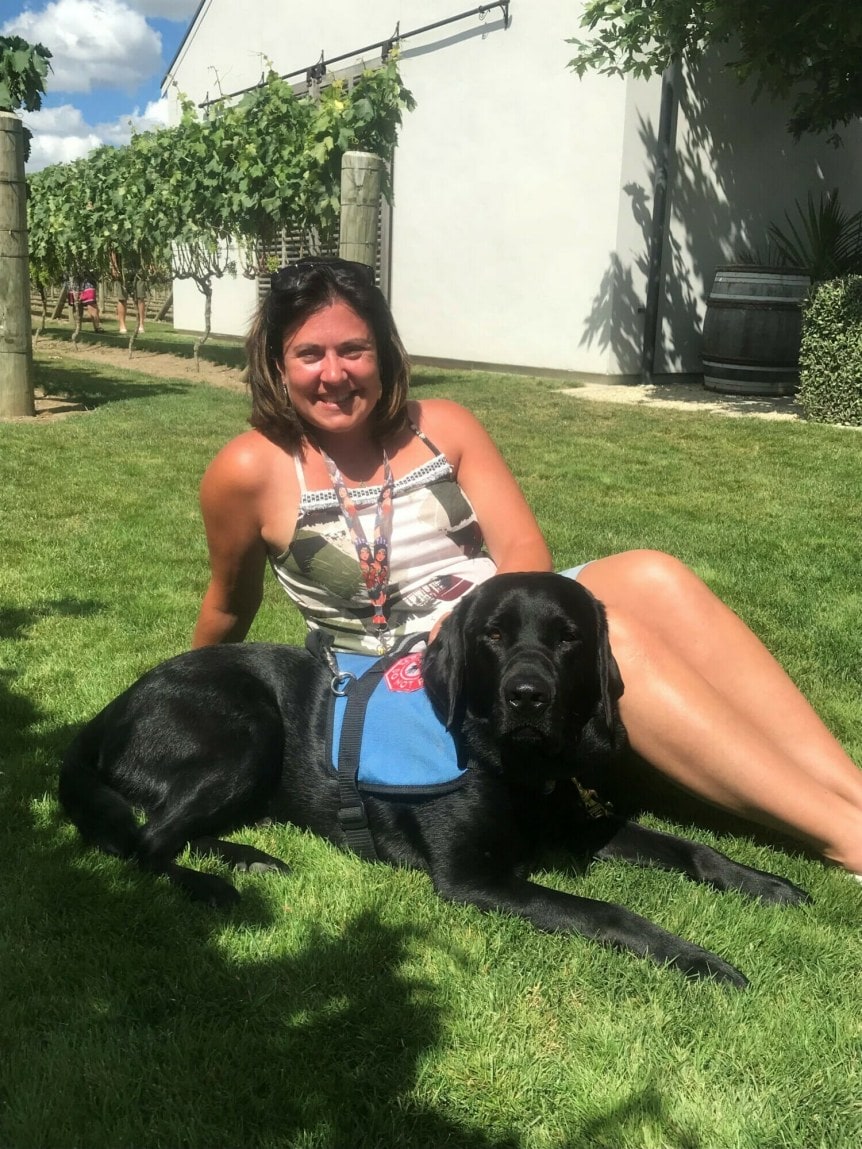
“When I was growing up, even though I had MS symptoms since I was 14, I wanted to go to the Olympics. I qualified for the US junior running team when I was five, I was state champion, I played division one soccer, you know, all those kinds of things. When the MS symptoms got worse, I was told I couldn’t do that anymore, and I just collapsed inwards”.
After being told she wasn’t able to have kids, Liz had a son, which “was a blessing”. However, when he was two-years-old, Liz had the most severe MS attack/flare-up she had ever experienced.
“I went numb and ended up in a wheelchair. It lasted almost a year and a half before I started getting full function back. So having a two-year-old, not being able to move around, having to have someone lift you up, put you in the bathtub, help you go to the bathroom, I was just miserable. I felt like I was just a burden on everyone. I had no hope.”
Liz shows her wrists to the camera – “My son drew the tattoos for my wrist, one is a phoenix bird to remind me to keep rising after every attack and the other one is two hearts with an infinity around it, saying that he’ll love me forever. MS is a really hard thing to navigate when you’re alone, but I have to live for my son.”
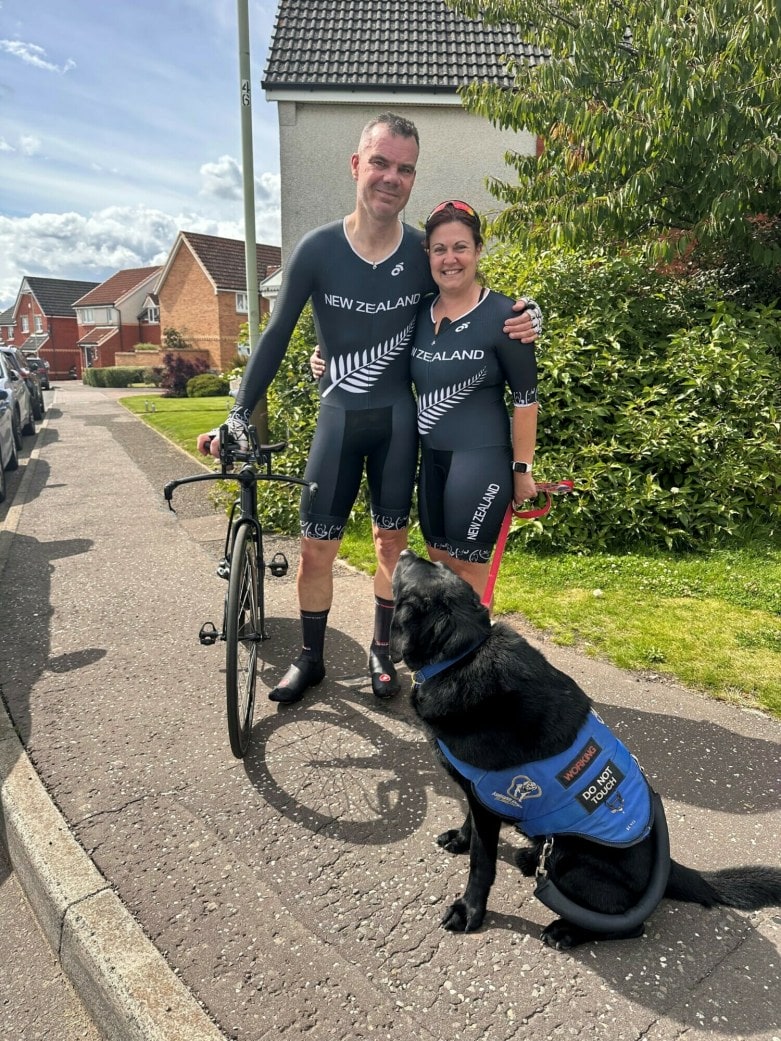
Discovering para-cycling has been a life saver for Liz. The cycling sport is adapted for people with various disabilities, and consists of road and track races. It was the best fit for Liz, who tried a few other sport activities but none of them clicked.
“I wanted to exercise because I wanted to try and heal. I had to do it for my son, I didn’t want him to see me wasting away. So along came Paddy and we started running together a little bit, but I kept falling over. So we started paddleboarding, but my balance wasn’t great and Wellington weather is not amazing for it. I tried a bit of swimming, but then I kept getting infections. Then, a friend of mine who’s also a Paralympian, said ‘Why don’t you try cycling?’”
Liz had strong legs, and great potential, but she needed a coach to build up enough strength to cycle for long periods of time. Now with new determination and locked into her goal, Liz asked peers for the best coach in the country, and was introduced to Steve, who has gone above and beyond being simply a coach over the past four years.
“Steve actually has saved my life. He was the one who recognised that I was really depressed and held out his hand and helped me go to the doctors. When I’ve been cycling and then passed out, he’s literally helped revive me. He has to work every day rewriting my training programme to fit my ability and physical status at that time, because every day is different with MS. He’s helped to give me my life back, and has helped me get back to my Olympic dreams. Steve is a true superhero to me. He’s been there through thick and thin. Having someone like him who is strong and coaches world champion athletes, very elite level athletes, yet he spends time on me, is incredibly humbling.”
Multiple Sclerosis Awareness Week runs from 11 – 17 September, and is crucial in helping New Zealanders discover and learn more about the very misunderstood disease, as well as inspiring others to live well with MS. There are over 4,100 people in Aotearoa with MS who feel unseen in their pain, and need community support.
“MS Awareness is so important, because there is such a lack of understanding of what this disease is, how it affects you and how it affects your wider family. There is this weird resistance of people not wanting to learn about it – probably because it’s invisible,” says Liz.
Steve has a great example for helping people understand the challenges of MS – “If you had a shark bite off your leg, people would instantly understand the idea that you used to be able to walk around, and that it must be a very difficult thing mentally, to not be able to do the thing you could do before. Well, it is no different, for people with MS.”
Liz and Steve want to let us know that it isn’t all gloom, though. “Yesterday, we went rafting down the Colorado River, and the wind was blowing so hard. We spent most of the time going backwards, so at one point we realised we’re not going to get out of here any time before midnight, so we might as well enjoy it. The scenery and the beautiful mountains…we saw little squirrels and chipmunks scurrying around the rocks… and Paddy was wearing a life jacket and fell asleep at the front of the boat. It was beautiful. It was absolutely perfect. If it wasn’t for MS, I wouldn’t have been on this journey in the first place and I would have missed out on all those beautiful things.”
“Things are gonna change if you get a disease, but don’t be afraid of the different route,” adds Steve.
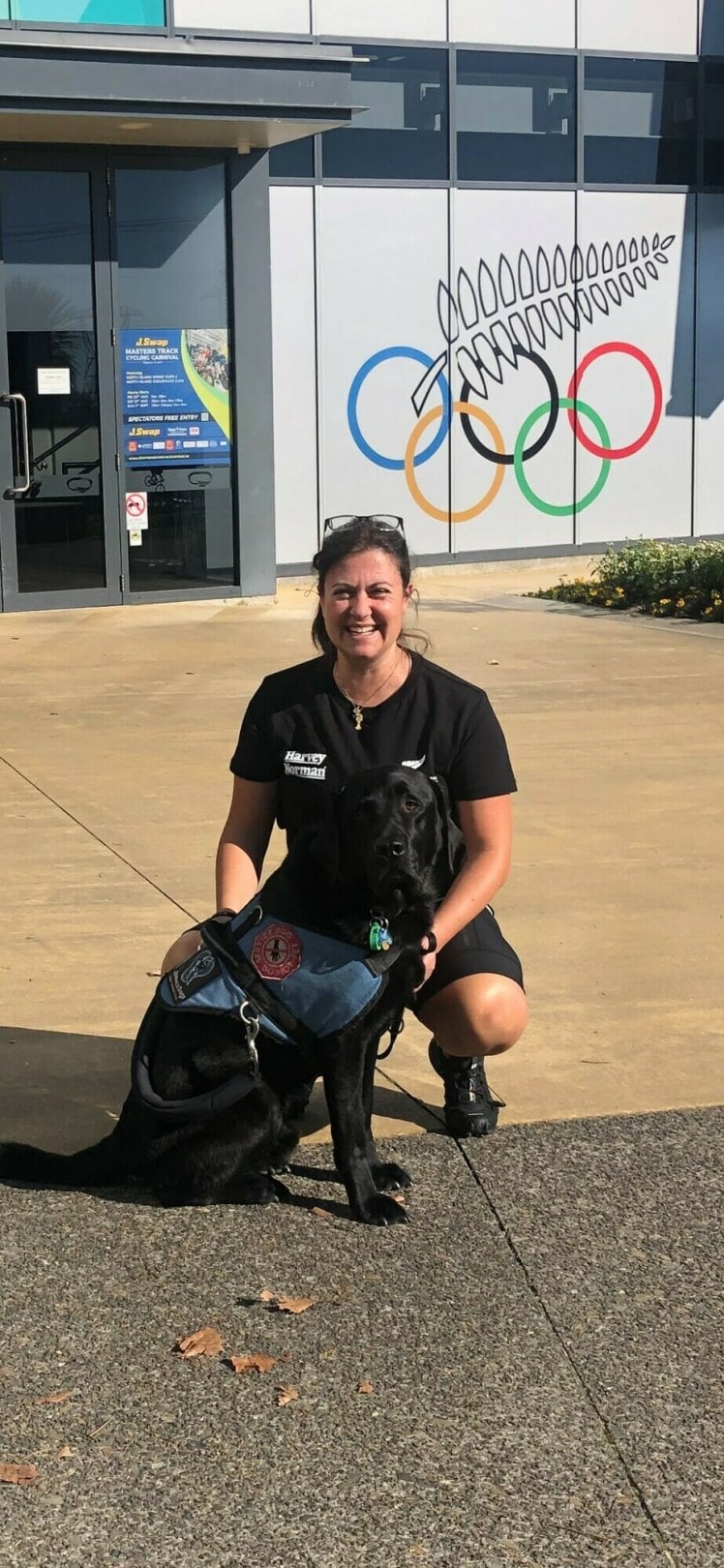
So what’s next for Liz? More cycling of course. You can support her pathway to the 2024 or 2028 Paralympics by donating here, and make sure to check out The Phoenix Project, Liz and Steve’s project on helping people with MS achieve their goals and combating mental illness.
Multiple Sclerosis Week is 11 – 17 September. Learn more about MS here and please consider donating here.
Featured in Woman magazine: https://womanmagazine.co.nz/multiple-sclerosis-awareness-week-liz-gasson-on-living-life-with-ms/